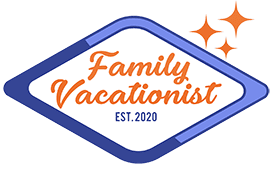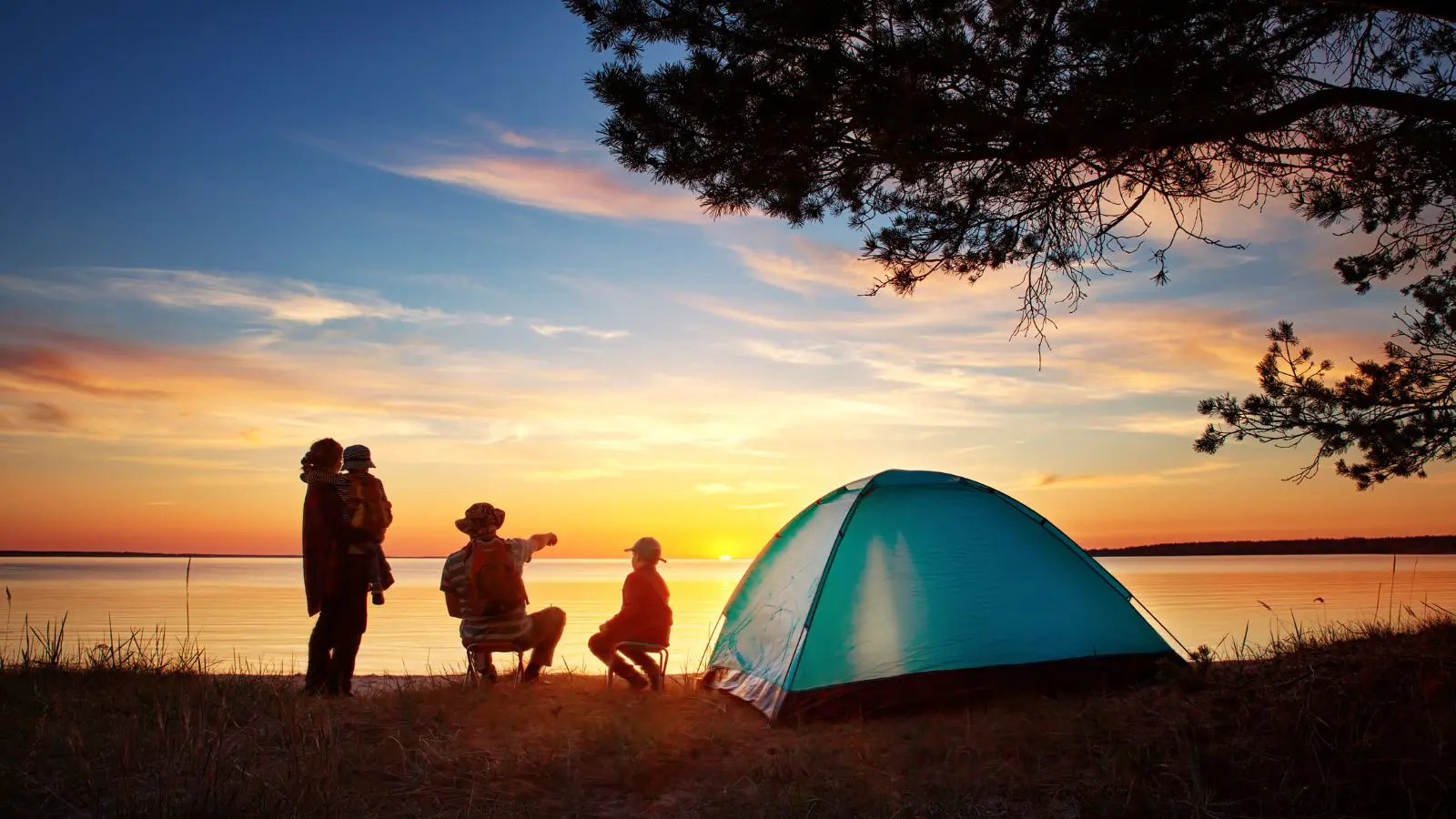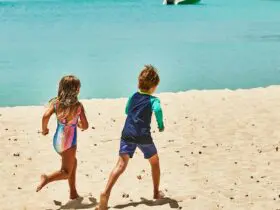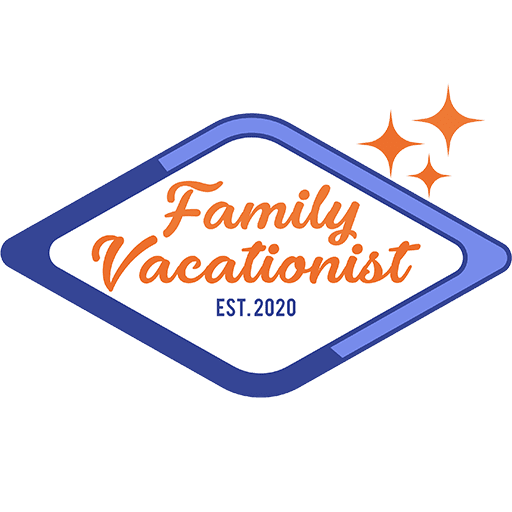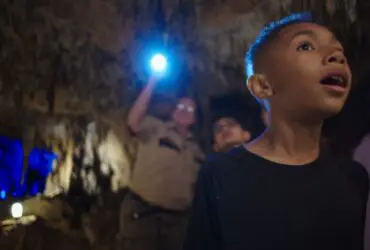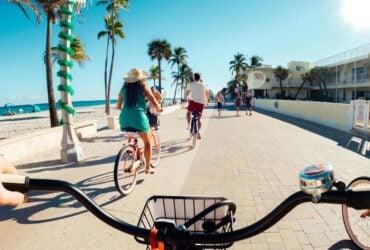Picture the perfect early September afternoon: the scent of freshly mowed grass ripened by the sun, the golden hour stretching across a wide field, the rustling pine trees waving softly in the breeze—all this plus my four-month old son resting in my arms as I rock him back and forth, singing sweet nothings. In another context, the scene would be idyllic.
Instead, my camping misadventure had only begun.
It started, like most unfortunate plans do, with some late-night scrolling on social media. On my third—maybe fourth?—regular middle-of-the-night feeding, the only thing to do to stay awake was to let the internet videos wash over me. Of course the algorithms knows I’m a mom, and one who used to travel at the slightest excuse (or a good flight deal) too. So what used to be a feed of mostly inspirational videos of hikers bagging sunrise peaks in New Zealand or trekking to Machu Picchu became mother after mother toting newborns through slot canyons or backpacking up craggy peaks in the Tetons like it’s no big deal.
Camping with a baby is easy, their perfectly curated audio says. Anyone can do it. Forget that I could barely walk for a few weeks after delivery. Or that I was still struggling to do much of anything. In that bittersweet sleepless haze of postpartum hormones, I decided I had to get outside and for some family camping this summer, no excuses allowed. We would start small and by fall I’d be applying for backcountry permits to go hiking with a baby in tow.
My Tips for Camping with a Baby
As you might have guessed, our first try camping with a little one didn’t quite go as planned. Here’s what I learned about camping with an infant as a new mom—and why I’m waiting until my son is a year old to try again.
BABY ON BOARD: 10 Baby-Friendly Vacations That Everyone in the Family Can Enjoy
1. Have an Exit Strategy, but Don’t Make it Too Easy

When I asked around for tips on camping with a baby, most of the moms I talked to said, “Don’t.” I didn’t think to ask why. Now I know. Of course I figured that tent camping with an infant would be a challenge, but I wanted to set myself and my husband up for success. Instead of setting up our family tent in our own backyard (where I could easily escape to the comfort of my bed), a neighbor offered a spot on their farm. The five-minute drive each way meant I could technically pull the plug at any time, but it was just far enough away that I knew I’d want to stick out the night if it got uncomfortable.
FUN FOR ALL: 10 Toddler-Friendly Vacations That Are Just as Much Fun for Parents
I stand by this strategy, especially if you live in an area with lots of local trails or campgrounds. Embrace camping closer to home at first, and then build up to longer car rides or trips. And because it was my neighbor’s farm, it would be just us—no tip-toeing around other campers. (That seemed like a good idea too, but it’s a strategy I now wholeheartedly reject for reasons that will become obvious momentarily.)
2. Find a Campsite with Baby-Friendly Amenities
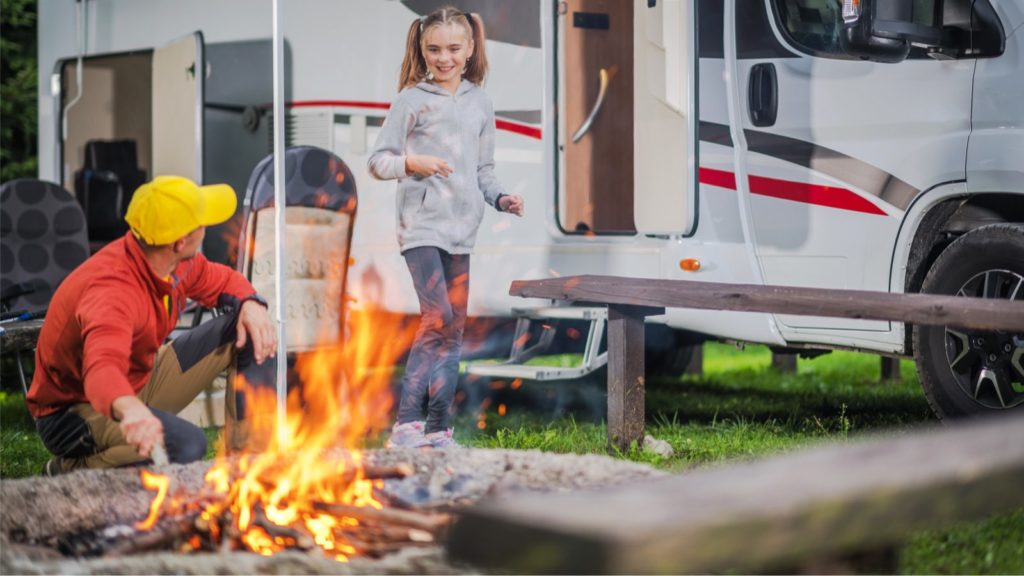
Camping with a baby at an isolated campsite was mistake number one for us. While it was lovely to have a secluded and gorgeous campsite, it also made it more difficult to camp with a baby. Parking the car in our neighbor’s driveway meant walking 100 yards to the tent instead of backing right into the campsite. No bathrooms or running water meant everything had to be on hand. And because starting a fire in a dry hay field is never a good idea, once it got dark we just went to bed.
COMFORT AND CONVENIENCE: 7 Best All-Inclusive Resorts for Families with Toddlers
I let my fear of judgment and criticism from other campers keep me from picking a local campsite that would have allowed for a slightly easier first outing. As if I haven’t been woken up by late-night sing-a-longs or rowdy slackliners late into the night at a public campground. Next time I go hiking with my son, whether as a baby or toddler, I’ll choose a family-friendly campground with all the amenities instead.
3. Don’t Plan on Sleeping
If you have a little one sleeping through the night, or almost sleeping through, it actually is a great time to take them camping. Whether you choose to co-sleep on one air mattress or create a separate sleeping area for your baby, stay consistent with how you do it at home when camping with a baby. In my case, my son slept on his own in his crib at home, so we set him up in his own space in the tent, wrapped up in a baby sleeping bag. He woke up once at midnight, which was his usual time.
Me, however? I spent the whole night staring at the ceiling, scratching new bug bites, worrying over bumps in the night, and wondering if or when my son would start screaming. Sleeping on the ground was uncomfortable for my still-recovering postpartum body, and I conveniently forgot my pillow. I’m too old to mash up a sweatshirt under my head and call it relaxing. I was a zombie for days afterward, even worse than usual, and even if I had planned a hike for the next morning I wouldn’t have been able to do it.
4. The Right Camping Gear Can Make or Break Your Trip
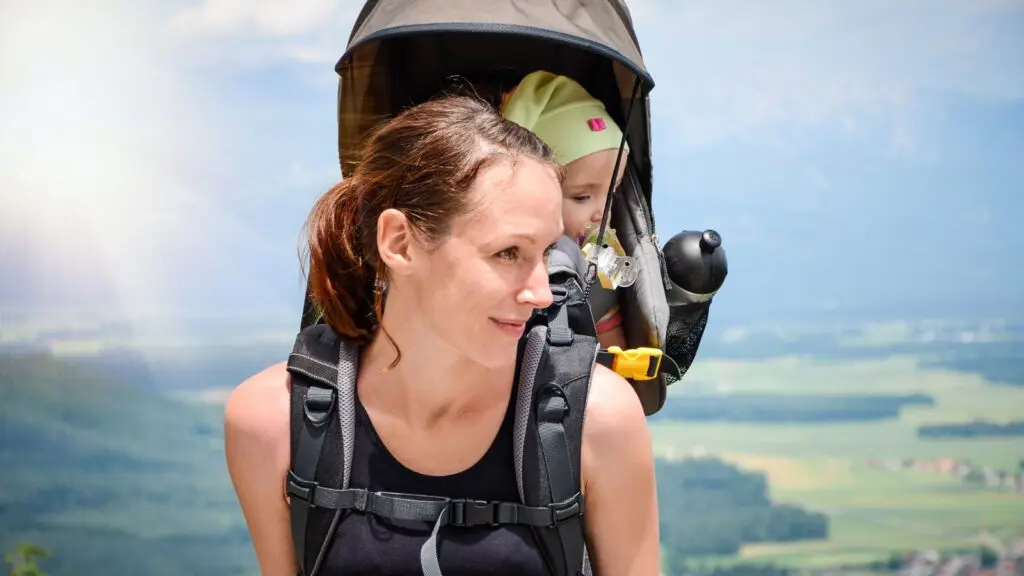
Pillow aside, I was one of those ultra-light everything minimalists when it came to camping before I became a mom. Those days are long gone. Camping with a baby, you want to make sure you have the right gear—and I’m not only talking about making sure you’ve triple-checked to make sure the correct lovey and binky are on board.
ON THE ROAD AGAIN: How to Safely Road Trip with a Baby (and Make it Fun)
We upgraded our camping gear to include a six-person tent with room to stand inside (yes, a larger tent is better even for a small family), plus a sunshade and some comfy camp chairs. With a baby in tow, it’s a good idea to have a few extra pieces of gear with you as well:
- A sleeping bag that’s sleep-safe for babies (or a sleep sack) and will let them stay warm all night
- A top-level cooler for bottles and milk or formula
- A sturdy soft carrier (and if they’re old enough, a structured carrier)
- A small outdoor-friendly playpen, bouncer, or portable travel crib (depending on age and mobility)
- A natural sunscreen and bug-spray (note that neither is recommended for infants under six months)
- An extra camping blanket or sleeping pad for your little one (and a nice portable bed for you)
- More diapers, burp cloths, and warm baby clothes than you think you need (seriously, double what you think you’ll need for baby gear)
5. Don’t Go Until You’re Actually Ready
Looking back, I wish I had just chalked up that first summer to getting my parenting sea-legs and slowing down. There is no prize for taking your baby camping at four months old. I didn’t want to let having a baby hold me back from being outdoorsy, but I confused the misery of sleeping outside in the dirt for enjoying the outdoors. Forget about “Type 2 Fun“—I want my son to learn that getting outside is the best kind of travel there is.
KNOW BEFORE YOU GO: 7 Things You Should Never Do When Camping with Pets and Kids
I still like to think I’m outdoorsy. But I caved and booked a hotel instead of a campsite the first time I went on a multi-day family hiking trip. Will I go camping again as a family? Of course. But I’m going to wait until my son turns one to try again, and even then we might be staying at family glamping resorts instead of old-fashioned campsites for the next few years. And that’s just fine with me.
More from FamilyVacationist:
- 5 National Park Campgrounds Where You Can Reconnect with Nature
- Camping with Kids: How to Plan Your First Family Camping Trip
- 10 Kid-Friendly Campgrounds and RV Parks That Are Perfect for Family Vacations

